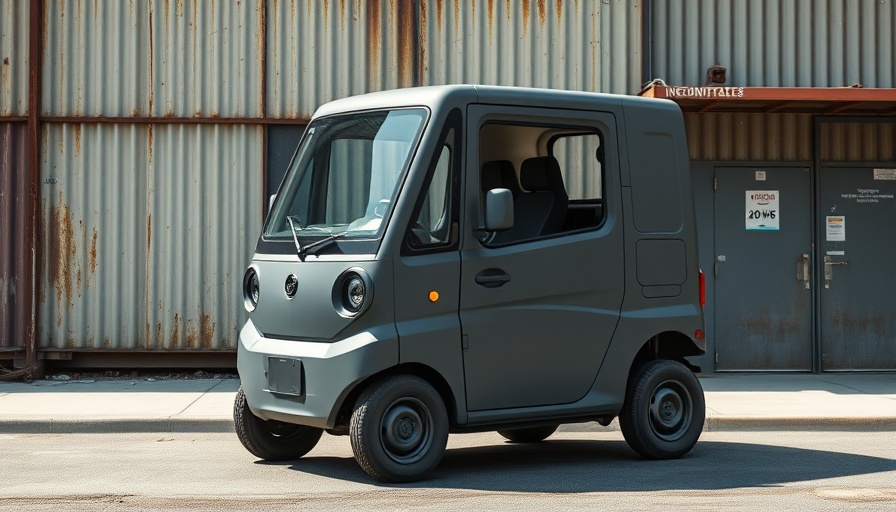
Slate Auto's Journey to Affordable Electric Vehicles
In a recent shift, Slate Auto, an electric vehicle startup backed by Amazon's Jeff Bezos, has stopped promoting its promise of delivering a pickup truck priced under $20,000. This comes in light of President Trump's tax cut bill, set to abolish the federal electric vehicle (EV) tax credit, a crucial $7,500 incentive that Slate relied on to maintain its competitive pricing. The bill is anticipated to be signed into law on July 4, putting the startup's ambitious pricing strategy in jeopardy.
The Impact of Federal EV Tax Credit Cancellation
The cancellation of the federal EV tax credit represents a significant setback for Slate, which had marketed its all-electric pickup truck with a promise that hinged on this incentive. Before the recent changes, Slate's marketing efforts confidently declared a vehicle launch with a cost effectively aligned to average American budgets. This pricing limitation was a crucial selling point, as many models available today have price tags that exceed the reach of most potential buyers, particularly families seeking budget-friendly options.
Future of Slate Auto and Affordable Vehicles
Looking ahead, the company has stated that it will not begin production until late 2026 at the earliest. Both the CEO Chris Barman and CCO Jeremy Snyder emphasized their mission to deliver vehicles that are not only affordable but also customizable, directly addressing the growing concern of escalating prices across the automotive landscape. According to Snyder, “The auto industry has driven prices to a place that most Americans can’t afford, but we’re here to change that.”
A Landscape of Evolving Vehicle Pricing
Slate Auto's predicament raises questions about the future of affordable EVs in a landscape where technological advancements are rapidly at odds with pricing accessibility. Traditional automotive giants have also grappled with these challenges. For instance, companies like Tesla and Ford have responded to market demands by integrating cost-saving technologies into production.
The Family Perspective: Why Affordability Matters
For parents of school-aged children, the dream of an affordable and efficient family vehicle has never been more urgent. Families frequently navigate tight budgets and seek transportation that can fulfill multiple roles, from shuttling kids to school to embarking on family road trips. The disappearance of a readily accessible EV option could disenfranchise a demographic eager to transition to greener alternatives.
Consumer Education on Electric Vehicle Benefits
Despite these recent setbacks, it is crucial for consumers to understand the long-term benefits of electric vehicles. EVs generally offer lower maintenance costs, environmentally friendly operation, and potential savings on fuel in the long term. Knowledge is power, and understanding the intricacies of EV technology and associated costs remains critical for families considering a transition to electric.
What Lies Ahead: Predictions for Electric Vehicle Adoption
As federal policies shift and market dynamics evolve, the question remains: what does the future hold for affordable electric vehicles? Experts predict that innovation will continue to drive costs down, albeit slowly. New battery technologies promise to enhance range and efficiency, potentially reshaping the current pricing paradigm. On the consumer side, the demand for affordable and eco-friendly vehicles is likely to grow, prompting more companies to pivot strategically to meet this demand.
Final Thoughts on the Affordable EV Landscape
While Slate Auto’s challenges highlight significant hurdles in the journey toward affordable electric vehicle production, the vision of reducing entry costs remains clear. Stakeholders—including manufacturers, policymakers, and consumers—will need to collaborate to create an environment where electric vehicles are accessible for all. As consumers, we must stay informed and actively seek out technologies that promise to make our lives better.
As we navigate the complexities of electric vehicle adoption and pricing, understanding the full spectrum of ownership costs can foster informed decision-making, especially for families looking to embrace a more sustainable future.
 Add Row
Add Row  Add
Add 




Write A Comment